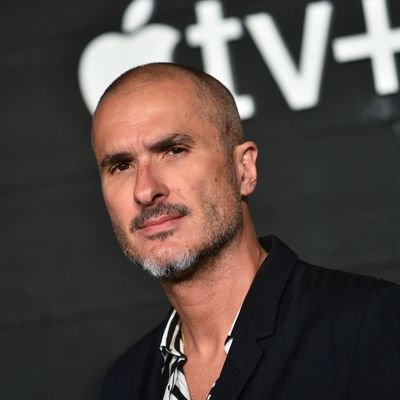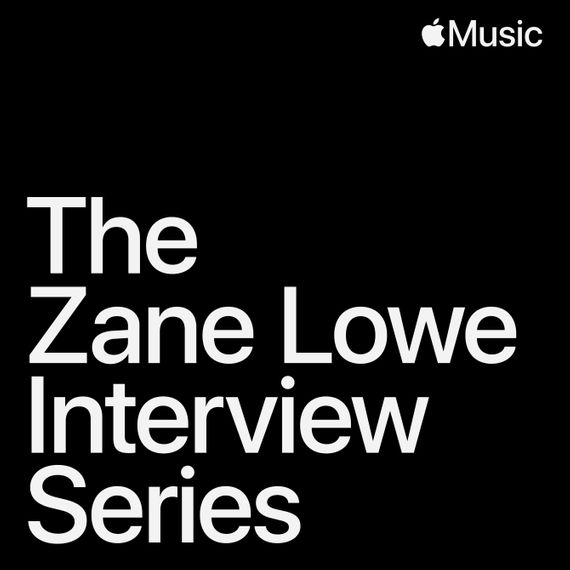
A few weeks ago, Apple Podcasts saw a curious addition to its directory: The Zane Lowe Interview Series, which was marked on the platform as an Apple Music podcast. Lowe, of course, is the popular DJ whom Apple had recruited in 2014 to oversee programming for Beats 1, where he also hosts a few programs. His work on those shows, particularly when it comes to the interviews, has become fairly renowned. Earlier this month, the New York Times ran a profile on Lowe coronating him as “Pop’s Unofficial Therapist.”
The podcast itself isn’t really much to talk about. It seems to mostly serve as a distribution point for interviews Lowe had previously done for his shows on Beats 1. While those interviews are wildly interesting — like the Kanye West two-parter originally conducted at West’s Wyoming ranch back in 2019, which remains an incredible listen — The Zane Lowe Interview Series is essentially a repackaged derivative product, at least for now. It also hasn’t appeared to have made much of an impression. As of this writing, the show hasn’t yet cracked the coveted real estate of the main Apple Podcast charts, though it is floating somewhere near the top of the more specific music-podcast chart.
But the release of the podcast is interesting due to its surrounding context. It comes during a sensitive time in the podcast business, where the medium’s primary power dynamics are in unprecedented flux, thanks in no small part to rival Spotify’s recent activity. With that in mind, Apple’s latest move serves as a potential sign of bigger changes to come.
Apple Podcasts — and iTunes before it, back when that was still around — has long served as the dominant facilitator of all podcast listening. Its primacy helped enforce podcasting’s historically open “anybody can publish” ethos, in large part due to its hands-off relationship with the medium. Aside from helping promote shows through a curated front page at zero cost, the platform essentially functioned as a purely neutral warden for the community. That means no paid marketing options that could help richer publishers access audiences more efficiently, no exclusive licensing deals that prevent certain shows from appearing on other platforms, no original programming that could directly compete with other shows within the directory. For the longest time, Apple Podcast’s relative neutrality set the tone for the podcast ecosystem. It was the primary context of engagement; whether you were a major media corporation or an indie product, you basically competed in the same ways to reach an audience.
And then, of course, Spotify changed everything, when it spent over half a billion dollars in the podcast space over the past year and a half to rapidly grow its share as a podcast distributor. That money went into the acquisition of several podcast companies (Gimlet Media, Anchor, Parcast, The Ringer), some of which now produce exclusive programming for the platform, along with several major exclusive licensing deals. The pièce de résistance came last month, when Spotify locked down The Joe Rogan Experience into a multi-year exclusive licensing deal. That podcast is widely believed to be one of the biggest podcasts in the business, and in locking the show down exclusively, Spotify effectively took away one of the biggest listening drivers from the Apple Podcast platform — as well as the broader podcast ecosystem. Podcast listening on Spotify is said to be growing tremendously over the past year, with the company’s most recent earnings report stating that global podcast consumption on the platform “continues to grow at triple digits” year-over-year. The podcast world’s overall listening data picture is still hard to come by, but at the rate and intensity that Spotify has been pushing forward, the prevailing theory is that Spotify’s spend-y efforts may very well position the platform to outpace Apple Podcasts in due time.
All of which leads to an increasingly competitive environment where many believe that Apple will respond in some way or another, if only to preserve its relevance over the long term. And over the past year, some in the podcast business began to suspect that we might very well see Apple match Spotify in its original programming and exclusive licensing efforts, effectively pushing podcasting into a “platform war.” This has generally been regarded as a bad potential outcome in the community, as it could very likely lead to the end of podcasting’s open “anybody can publish” ethos that gave the medium its identity and much of its original value.
This suspicion of an arms race was substantiated somewhat by a Bloomberg report last summer, which drew attention to what appeared to be a growing interest within Apple towards actually developing its own internal original podcast strategy, in part to counterbalance Spotify ongoing efforts. “Apple plans to fund original podcasts that would be exclusive to its audio service, according to people familiar with the matter, increasing its investment in the industry to keep competitors Spotify and Stitcher at bay,” the report noted. For many in the podcast community anxious about a “platform war,” this seemed to point toward the worst.
But a later Bloomberg report, which came out in May, almost a year later, contained additional detail indicating a potentially more banal future: “The technology giant has begun acquiring two types of original podcasts, according to people familiar with the matter: One category is audio spinoffs of existing movies and programs, and the other is original programs that could eventually be adapted into future TV+ video content. In other words, Apple’s original podcast strategy, as it stands, seems to be focused on promoting and enhancing other parts of its business, as opposed to taking podcasts as the main event, which has been Spotify’s approach.
The recent rollout of The Zane Lowe Interview Series seems to fit neatly within that second interpretation of Apple’s original podcast strategy. Basically a derivative experience, that podcast can be charitably read as a reasonable piece of marketing for Beats 1, a distinctly and immediately more lucrative part of Apple’s business.
It remains to be seen what that ultimately means for the podcast ecosystem more broadly over the long term. On the one hand, Apple not directly engaging with Spotify in an overt platform war means that the company will continue enforcing the open ethos of the podcast ecosystem. But on the other hand, Apple hasn’t really done much else to compete with Spotify’s aggressive push for greater podcast market share, and even if it does continue to enforce open podcasting, that won’t mean much if most people end up listening on Spotify anyway. No matter how popular The Zane Lowe Interview Series might become, Apple is still far from mounting a decent fight against Spotify’s campaign to take over podcasting.



